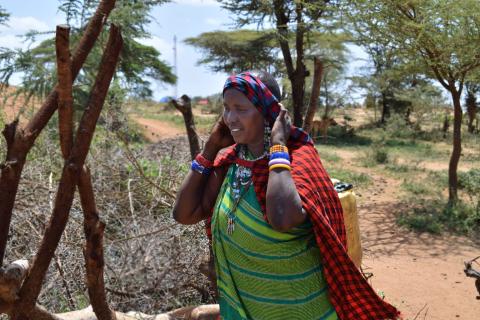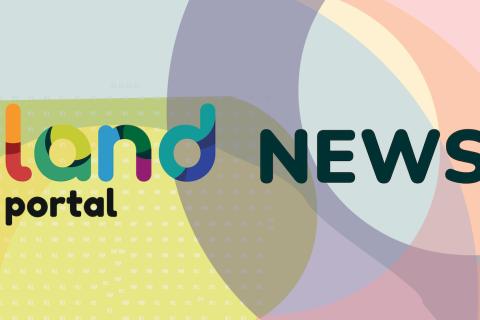
Topics and Regions
Independent consultant working on land, natural resources and gender, with experience on key policy issues around land tenure reform, governance of tenure, large-scale land investments, gender equity in resource governance and management, women's land rights, and tenure in non-agricultural rural contexts including pastoralism and extractives. Leading Mokoro's Women's Land Tenure Security (WOLTS) Project since 2015. Country experience includes (field) Laos, Mongolia, Mozambique, Nigeria, Rwanda, South Sudan, Tanzania, Uganda, and (desk-based) Cambodia, Indonesia, Myanmar, Nepal and Vietnam. Experience includes drafting of technical guidelines, and subsequent capacity building and training work, on gender and responsible governance of land tenure to support the implementation of the VGGTs; developing and leading gender and land training in the Mekong Region; field research on large land-based investments in agriculture in Laos and Tanzania; a mid-term evaluation of a pioneering women’s land rights and legal empowerment project in Mozambique; strategic advice on systematic land registration pilots in Nigeria; and extended work on land tenure regularisation, land disputes, and land use planning in Rwanda. Tweeting on @daleyliz
Interests: Land Tenure and Gender
Details
Location
Contributions
Displaying 21 - 30 of 32To secure equal rights to land, bring men and women together
There is an underlying tension in the land rights movement that is rarely addressed head on, which is the perception that securing women’s land rights threatens community land rights. Community land rights are typically held by indigenous people, small-scale and subsistence farmers, pastoralists, herders and many other groups who are directly dependent on land for their livelihoods but whose land tenure is often the most precarious.
Gender guidelines to be distributed in all 330 districts of Mongolia
Pilot study supports national roll-out of participatory land use planning
Sound, sustainable land management is critical to the long-term viability of Mongolia’s traditional herding way of life. And careful planning at local level, in a participatory and gender-inclusive way, is needed to underpin that.
WOLTS 2020 - Gender training, blogs and more
All in all, despite COVID-19, the WOLTS team have had a highly productive year. In 2020 we've been adapting, taking stock, writing blogs, and concluding our pilot 'gender and land champions' training programme in Mongolia and Tanzania.
WOLTS Team Perspectives...the story so far
‘WOLTS Team Perspectives’ is a new series of blogs launched in February 2020 by the global WOLTS team. In this series, field team members share their views about the impacts of the project’s action-research on gender, land and mining among pastoralist communities in Tanzania and Mongolia.
Putting research into action - one muddy step at a time
I write this blog as our project team embarks on a fifth year of work on women’s land tenure security (WOLTS) with pastoral communities in mining-affected areas of Mongolia and Tanzania. Just before Christmas 2019, we were in Mundarara village in northern Tanzania. Exceptionally heavy rains made getting around much more challenging than usual. Locals travelling on foot had to make wide detours to avoid getting bogged down in waterlogged grazing land, and it took everyone much longer to get to the village primary school for our long-planned training day.
Are rubies undermining Maasai culture? New WOLTS photo essay published!
Our latest WOLTS publication is a fascinating photo essay from one of our pilot research communities, Mundarara, in Tanzania. The piece by Jim Grabham, titled “Are rubies undermining Maasai culture”, shares insights gleaned from in-depth interviews with two participants in a one-year training programme on gender, land and mining that has been developed and carried out by the HakiMadini and Mokoro WOLTS project team in Tanzania.
New Mongolia community research report published by WOLTS team
The latest report from Mokoro's WOLTS project team is the product of rigorous field research in a third Mongolian community, in collaboration with the Mongolian NGO, People Centered Conservation (PCC). The report addresses critical issues at the intersection of gender, land, mining and pastoralism in Tsenkher soum, in Arkhangai aimag in central-western Mongolia.
"Gender, Land and Mining in Pastoralist Tanzania" - new report from WOLTS team
"Gender, Land and Mining in Pastoralist Tanzania" is the product of rigorous field research over two years by WOLTS team members from Mokoro and HakiMadini. Significant stresses from mining, population growth and climate change, as well as disturbing levels of violence against women have been uncovered in this study of two traditional pastoralist communities in Tanzania. Initial findings are based on repeat rounds of participatory fieldwork by the WOLTS team and have already received attention at national and local level.
"Gender, Land and Mining in Mongolia" - new research report from WOLTS team published today
“Gender, Land and Mining in Mongolia” is the product of two years of rigorous field research in Mongolia in collaboration with the Mongolian NGO, People Centered Conservation (PCC). It is the first country research report by the WOLTS (Women’s Land Tenure Security) project team at Mokoro and involved repeat rounds of both quantitative and qualitative participatory fieldwork to validate results.
Women's Land Tenure Security (WOLTS) Project Update on IWD 2017
To celebrate International Women’s Day, Mokoro is pleased to share news of the successful completion of fieldwork in the fourth of six phases of our WOLTS pilot study in both Mongolia and Tanzania. WOLTS is a major multi-country strategic action-oriented research project in support of the land rights of women and vulnerable groups. The WOLTS team is well underway with preparing two major reports of our country research findings, to be launched, respectively, in May and June this year.








